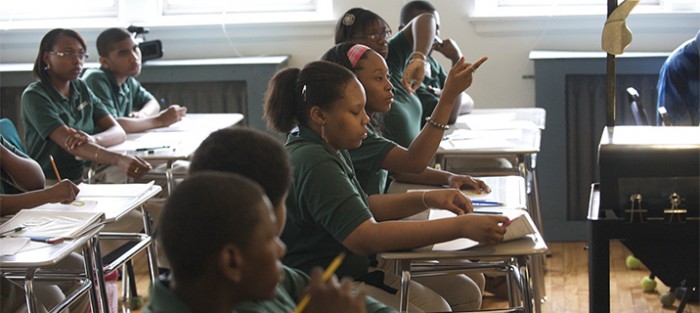Kristin Decarr I Education News I The Chronicle of Education
A study performed by researchers at the University of California suggest that one reason girls typically do better in school than boys is that girls go to sleep earlier, are more active in the mornings, and can handle sleep deprivation better than boys can.
Countries throughout the developing world continue to focus on the educational gender gap, as 57% of undergraduate degrees in the United States are awarded to female students. Girls typically perform better at GCSE than boys do in the UK, and are more likely to attend university, with 94,000 more girls than boys having applied to British universities this year.
Written by Lester Lusher and Vasil Yasenov, two economists at the University of California at Davis, the report suggests that the timing of the school day could result in girls tending to perform at a higher level academically than boys. Several other sleep studies have found that the inner workings of boys cause them to wake up later than girls.
“Given the widespread sentiment that overall students are not receiving enough sleep, these studies suggest that early school start times could be especially detrimental to boys,” according to the report.
Data for the study was taken from an experiment carried out between 2008 and 2014 in a single school district in Eastern Europe, where administrators changed the schedule around so that the school day began in the afternoon. For an entire year, students alternated start times, so that one month they began school at 7:30 am for high school students during September and all “even-numbered” months, while middle school students began the day at 7:30 am in all remaining “odd-numbered months.” Students then began class at 1:30 pm during alternating months.
within article submit
The remainder of the school experience remained the same, including the period of the classes, the locations, and the teachers who taught each class. Each day consisted of seven 40-minute classes with a 10-minute break in between each one, except for between the third and fourth class, where a 20-minute recess was given.
In all, more than 240,000 grades handed out to both middle and high school students were analyzed for the report. As a result, the authors found that boys tended to improve their scores, closing the educational performance gap by as much as 16%, when school started in the afternoon.
“Sleep studies suggest that boys have longer circadian periods, or ‘body clocks’, predisposing them to later bedtimes and morning wake-up times. Consequently, girls show a stronger inclination for activity earlier in the day than boys.”
The authors stated that the effects were particularly strong for the first few classes of the day, with the gender differential response to the later start time explaining almost one-sixth of the gender performance gap.

